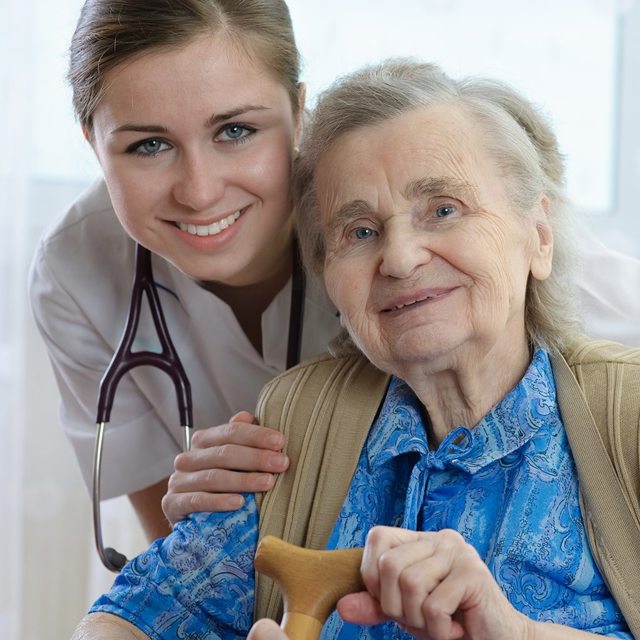
Palliative Comfort Care at Home
Palliative Care
Patients with chronic, complex or advanced illnesses can benefit greatly by receiving home health care focused on symptom management and pain control, also known as palliative care. Palliative care can help ease challenges and improve quality of life for patients, families, and caregivers.
Palliative care is provided by highly qualified and specially trained nurses, physicians, and other professionals for people with chronic or life-threatening illnesses, including patients who are undergoing aggressive treatment for cancer and other conditions. Palliative care at home provides support for a patient’s physical, psychological, emotional, social, and spiritual health. Palliative care at home emphasizes helping patients cope with side effects and symptoms that develop from either the illness itself or the treatment for the illness, including fatigue, nausea and vomiting, shortness of breath, constipation, and confusion. Palliative care professionals also help coordinate care, making it easier for you and your caregivers to navigate the healthcare system and ensuring all medical providers are on the same page.
Palliative Care Patients
Penn Highlands Palliative Care provides symptom management and education at home at any age and stage of your illness while you are still pursuing treatment. We serve patients with declining ongoing, life-limiting conditions who have had two or more admissions to the hospital in the past six months. Some of these conditions may include but are not limited to:
- ALS
- Cancer
- Chronic obstructive pulmonary fibrosis (COPD) or lung disease
- Dementia
- Heart disease (i.e., congestive heart failure, valvular, coronary disease)
- HIV/AIDS
- Kidney disease and kidney failure
- Life limiting trauma
- Life limiting stroke
- Liver disease and liver failure
- Neurological diseases
- Parkinson’s disease
Palliative care nursing also can benefit individuals who:
- Are confined to bed
- Have bed sores or non-healing wounds
- Are unable to eat or drink enough to sustain weight
- Have bowel difficulties
- Are overly agitated
Our palliative care team consults directly with you and your family to determine your goals and desires around treatment and design a care plan to best meet your needs. For example, you may decide to forgo a medication rather than experience the drug’s side effects or you may choose a medication but need care to tolerate the side effects. Patients and families supported by Penn Highlands Palliative Care can expect comprehensive supportive palliative care at home including:
- Managing pain and other debilitating physical symptoms
- Providing support or resources for physical, emotional, spiritual, or practical problems causing discomfort and pain.
- Educating family members who are involved with care
- Coordinating care and communicating with various healthcare providers
- Connecting the patient and family with other care providers such as therapists, aides, clergy, and social workers.

FAQs
Palliative care, also known as comfort care, is a medical caregiving program aimed at optimizing quality of life and mitigating stressors for people who are living with serious, complex illness.
There are several versions of the five stages of palliative care. In a clinical definition, the five stages refer to the patient’s condition: stable, unstable, deteriorating, terminal, and – for the family –bereaved. The five stages of palliative care also can refer to the steps of acquiring and starting palliative care. These stages include creating a care plan, providing emotional and spiritual care, providing medical support, arranging inpatient or additional home care, and supporting the family after the death of the patient.
Our interdisciplinary palliative care team creates a personalized care plan designed to meet the unique needs of you and your family. Palliative care services are provided by a variety of professionals:
- Fellowship-trained physicians
- Registered nurses
- Spiritual care providers, such as chaplains
- Other specialists, such as social workers, rehabilitation therapists, dietitians, and personal caregivers.
Palliative care is covered by Medicare, Medicaid, and most private insurances upon meeting certain criteria.
While some people confuse palliative care with hospice, they are not the same service. Hospice care is appropriate for people who have six months or less to live and are no longer seeking curative medical care. Palliative care supports patients who have complex illnesses or chronic health conditions and are continuing curative medical treatment. Both comfort care services share the same goal of managing symptoms, providing pain relief (if needed), and helping patients achieve the highest quality of life possible.


